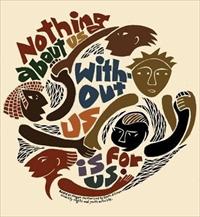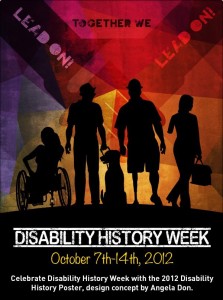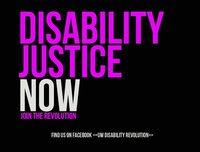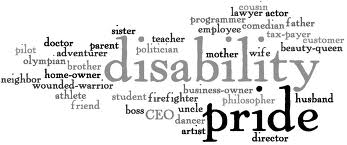Representing Difference as Pathology: An Example from Simon Baron-Cohen’s The Science of Evil
I find it very painful to write about the work of Simon Baron-Cohen. I’ve done so extensively in the past, and this spring, I decided to take a break from it. But there is a passage in his latest book, The Science of Evil: On Empathy and the Origins of Cruelty, that has haunted me since I read it last year, and I feel the need to explore why. I’ve critiqued the book before, but somehow couldn’t touch this passage until now, and I think I understand why: The passage doesn’t simply speak volumes about how others view autistic people in particular, or disabled people in general, but constitutes a particularly telling example of the ways in which our society pathologizes difference and blames people outside the norm for the treatment we receive.
In Chapter 4: When Zero Degrees of Empathy is Positive, Baron-Cohen makes the extreme, pejorative, and wholly incorrect assertion that, for people on the autism spectrum, “Other people’s behavior is beyond comprehension, and empathy is impossible,” and concludes that autistic people have “zero degrees of empathy” (Baron-Cohen 2011, 117). He attempts to mitigate the impact of these statements by saying that autistic people are “zero-positive” because, in his estimation, our systemizing skills enable us to build such things as elaborate moral systems (my elaborate moral system is built on empathy, thank you, but I digress) and cutting-edge technology (for which I have no aptitude whatsoever, thank you, but I digress) (Baron-Cohen 2011, 122-123). Despite this apparent attempt to redeem us from the lack-of-empathy stigma, Baron-Cohen presents the story of a 52-year-old man named Michael, who has Asperger’s Syndrome, as representative of the lives of autistic people, and he characterizes Michael as almost robotic: controlling, anti-social, utterly logic-minded, and incapable of understanding other people’s feelings or of having any emotional responses of his own (Baron-Cohen 2011, 96-100).
To illustrate his view that autistic people are on the zero end of the empathy scale, Baron-Cohen begins by writing about Michael’s childhood. I find two things rather fascinating about Baron-Cohen’s rendering: 1) His descriptions of Michael’s childhood do not illustrate Michael’s lack of empathy, but the lack of empathy of the children around him, and 2) the wholesale lack of empathy on the part of “normal” children goes entirely unremarked. He writes of Michael:
Even as a child he found social situations confusing and stressful. He didn’t play with other children in the playground, was never invited to their birthday parties, was not picked to be on their team. He avoided the playground by going to the bottom of the playing field at primary school — alone — and counting blades of grass. In the winter when it snowed, he became obsessed with the structure of snowflakes, wanting to understand why each one was different. Other children in his class couldn’t understand what he was talking about because in their eyes all snowflakes looked the same. Although the teacher had told all the class that every snowflake is unique, it seemed that he was the only person in the class who could actually see the small individual differences in the snowflakes. The other children in the class teased him, calling him “snowflake brain.” (Baron-Cohen 2011, 97-98)
It’s difficult, at first, to grasp all that is wrong with this passage, because Baron-Cohen is uttering entirely prejudicial things in a very kind and reasonable tone. Let’s start at the beginning: He suggests that a sign of Michael’s lack of empathy is that he didn’t play with other children, wasn’t asked to their parties, and was the proverbial last kid picked for the team. Baron-Cohen seems to take it entirely for granted that Michael is at fault, and that it was quite natural that the other children would reject him because of his as-yet-undiagnosed disability. He gives not the slightest nod to the idea that perhaps Michael didn’t play with the other children because they themselves were unempathetic — because they would not tolerate his confusion and stress, because they rejected him based on his difference, because they shut him out from every birthday party, and because they didn’t want him on their teams.
After continual social rejection, what exactly is wrong with a child running to the other end of the playing field alone and amusing himself as best he can? Counting blades of grass is not a normative response, but that doesn’t make it wrong; in fact, I can certainly understand why a stressed-out autistic kid who is being rejected for reasons he can’t fathom would try to calm himself with a counting ritual. Given the other possibilities for dealing with wholesale social rejection — lashing out in anger at others or doing harm to oneself — an obsession with grass seems to me an entirely non-retaliatory response, and says quite a bit about Michael’s gentleness. Not surprisingly, given the purpose of his narrative, the author never remarks upon this gentleness.
What I find most heart-wrenching, however, is the story of Michael’s fascination with the unique structure of each snowflake, and the ways in which the other children respond to it. Michael’s attentiveness to details that most people miss, and his love for the small and intricate beauty of the natural world, are deeply moving to me. The other children do not see what Michael sees and they do not understand his fascination, but Baron-Cohen does not tar this lack of understanding as a lack of empathy, despite the fact that he considers Michael’s inability to see what other children see, and his lack of interest in what gives them happiness, as prima facie evidence that Michael has an empathy disorder. I’m not sure on what logical basis a scientist could make such a subjective, one-sided, prejudicial assessment, but then again, it’s passages like this one that long ago caused me to give up on the idea of objectivity altogether.
Perhaps the most distressing part of the entire passage is the way in which Baron-Cohen assesses the children’s response: He writes that they “teased” Michael by calling him “snowflake brain” (Baron-Cohen 2011, 98). I take issue with Baron-Cohen’s use of the word “teased.” The children were not teasing Michael; they were calling him names and laughing at him. Teasing is good-natured fun between people of relatively equal power. There isn’t a hint of equal power here, and there is nothing good-natured about making fun of a beautiful thing that brings joy to an isolated, rejected kid. At best, several other children laughing at their defenseless classmate constitutes harassment; at worst, it’s bullying. Anyone who has ever been laughed at as a form of dismissal and exclusion knows exactly what I’m talking about. These are the kinds of microaggressions that accumulate to create self-doubt and self-hatred in those who are the targets of them. But Baron-Cohen does not seem to consider laughing at a vulnerable kid evidence of a lack of empathy in the “normal” children. In fact, he seems to imply that if Michael had any empathy for his classmates, he would have known better than to talk endlessly about snowflakes.
While Baron-Cohen’s much-cherished and erroneous belief that autism is an empathy disorder is the reason for the inclusion of this story in his book, the framing of the story is indicative of a much larger problem in writing about disability and other forms of difference: Non-normative people become responsible for our own social rejection. The accusations launched at Michael and, by extension, at us — that we’re incapable of “normal” human feelings and that we’re trapped in our own worlds — could just as easily be launched at those who reject us. How many “normal” people have enough human feeling to befriend and understand non-normative people? How many “normal” people are trapped in their own “normal” worlds, without any consciousness of what it means to be non-normative? The accusations of lack of caring and lack of engagement adhere to the ones who are different. Those in the majority are simply acting “normally” by doing all the things that, when non-normative people do them, are considered evidence of pathology.
These kinds of accusations are a form of victim-blaming that have no place in a civilized society. That people who consider themselves objective engage in it is an indication of how deeply entrenched a habit of mind it is.
References
Baron-Cohen, Simon. The Science of Evil: On Empathy and the Origins of Cruelty. New York, NY: Basic Books, 2011.
© 2012 by Rachel Cohen-Rottenberg









Catherine Woods
8/23/2012 | 7:36 pm Permalink
well said, and I couldn’t agree more!
Rose Walker
8/23/2012 | 8:39 pm Permalink
>>Non-normative people become responsible for our own social rejection. << I guess that is the underbelly of the "normal" beast, it's weak spot, it's profound imperfection… the inability to see who the real asshole is. Excuse my French.
Miss Rachel, you seem to be hyper-empathetic. Why is Cohen so blind?
Daniel
10/2/2012 | 7:20 pm Permalink
Maybe most normal people grow up so practicing being insensitive (if not cruel) that they reach adulthood taking completely for granted that their insensitivity is perfectly healthy. If Cohen is one such normal person, then he has too little emotional sensitivity to properly empathize with those of us who have never learned to be emotionally insensitive.
Julie
8/23/2012 | 9:57 pm Permalink
…Oh. Thank you. A thousand times. This is the one last niggling thing that has been driving me *crazy* about the social ramifications of my “disorder.” How can people say I lack empathy because I do not understand their point of view easily, and at the same time show active disinterest in *my* feelings and point of view even if I explain them as carefully as I can? I at least *try.* I had actually started to think I was missing something, some huge blind spot where the Magical Empathy lived, somehow so far beyond my understanding that perhaps in some mysterious way, my bending over backwards to be nice to people and explain my meager needs while they demanded more and gave less was *really* them having empathy and me having none, and I was just too damaged to see it! Only that was confusing, because I am capable of showing compassion in ways that people see, and I have known people who were capable of taking my feelings into account.
Because really, it’s not as simple as “NT people have empathy and people on the spectrum don’t.” Because the difference between the two *isn’t empathy.* Oh hey!
So. I feel better. Thank you.
Rachel Cohen-Rottenberg
8/25/2012 | 11:09 am Permalink
Julie, are you familiar with my Autism and Empathy site? You might find a good deal there that resonates with your experience. You can find the site at http://www.autismandempathy.com.
adkyriolexy
8/23/2012 | 10:50 pm Permalink
It’s kind of interesting, because this was the primary form of emotional abuse that I experienced as a child. Not so much being treated badly by others in itself (although, that was unpleasant), but the pervasive assumption among most of the adults in my life that I was choosing to be treated badly by others. That’s still the assumption, if I complain that someone treated me badly, it becomes about what I did to provoke it or seek it out.
But then, I do have a systemized rather than an empathy-based moral code, which probably contributes to being treated badly, actually.
Rachel Cohen-Rottenberg
8/23/2012 | 10:55 pm Permalink
Why would having a systemized moral code contribute to being treated badly?
It seems to me that when people blame the victim, they’re either bent on denying that people can do terrible things for no discernible reason, or they’re simply upholding the status quo by making it the fault of the individual.
adkyriolexy
8/24/2012 | 10:46 am Permalink
Lack of willingness to make exceptions, type of thing… I’m used to being told that I’m a horrible, heartless person because I refuse to acknowledge that someone’s unethical behavior is okay because she has a really good reason for it. And being asked “are you really saying that in [situation where most people would make a judgment based on projection], you would [made a decision based on principle]?” But no one (I’m told) could really believe these things, so I must be lying… or something.
Much of what is colloquially called empathy is simple projection. A person decides how he would feel in a certain situation and concludes that someone else in that situation must feel the same way. And if the recipient of this response doesn’t feel the same way, he must be disordered, and he must want to feel the same way. It’s very circular and self-reinforcing and illogical. (If I enjoy something, why would you conclude that I would be better-off or more well-adjusted if I didn’t enjoy it so much?)
Rachel Cohen-Rottenberg
8/24/2012 | 10:53 am Permalink
The thing is, my ethical system is empathy-based, and I get asked the same question as to whether intention trumps impact. To me, if a person has good intentions but does an unethical thing, I can simultaneously say that a) the person did not mean to be unethical and b) the person did an unethical thing that had an impact on someone else. I see no contradiction there.
And I completely agree that what most people call empathy is projection. Trying to walk in someone else’s shoes is all about what you think you’d feel like if you were them. It has nothing to do with how they actually feel being them. It’s a very perilous thing to do with someone of a different race, religion, socioeconomic class, gender, neurology, sexual orientation, etc., because their experience has been molded differently from yours, and saying that you understand it can be appropriative.
adkyriolexy
8/24/2012 | 4:58 pm Permalink
Ah, perhaps I’m just overly accustomed to having it attributed to my (allegedly) cold, heartless, rigid, rule-worshipping worldview. Although the types of things I was thinking of had less to do with intent vs. impact and more to do with hard application of a principle vs. making exceptions for what would be perceived to be the greater good.
I get this a lot with my across-the-board opposition to forced medical treatment (including of pregnant/birthing women). “You’re really saying if [convoluted and farfetched scenario], you wouldn’t intervene?” Yes, I’m really saying that. I wouldn’t intervene. It doesn’t matter how much empathy I might feel for the person in that situation, because it’s irrelevant. Even if I agree that forcible intervention would be in the best interests of the recipient of it (an empathy-based response), I disregard it, because I don’t believe we get to make rules based on feelings. So, I’m a heartless empathy-lacking lying troll monster.
That’s the kind of thing I was thinking of.
Rachel Cohen-Rottenberg
8/24/2012 | 10:44 pm Permalink
I don’t particularly see that as unempathetic; I see that as empathy leading in a different direction. To me, if you feel that forced medical procedures are unethical, then your empathy would dictate that there are no exceptions, because if there are, then there is the potential for abuse down the line. So the empathy seems to be directed toward people who might suffer potential abuses in the future, rather than the individual person in an individual situation. Am I understanding that correctly? I take a different approach: I make exceptions to rules, because I see ethical decision-making more flexibly, as a process in which I take into consideration a variety of factors and weigh different ethical principles against one another to see what the best course would be.
I see what you’re talking about more as abstract ethics versus situational ethics, rather than systemizing-based ethics versus empathy-based ethics. I can’t really conceive of any ethical system that doesn’t have empathy as a basis for it; ethical systems are in place to protect sentient beings, and there would be no reason to want to protect sentient beings unless you empathize with their potential suffering. It sounds like what you’re talking about is applying an abstract principle across the board rather than on a situation by situation basis.
adkyriolexy
8/25/2012 | 4:07 am Permalink
Yes, although I’ve always assumed that was a non-empathetic response, probably because I’ve always been told that it’s an indication of my lack of empathy and lack of goodness in general.
Mind, I do feel empathy for others, despite this, but I also think it’s possible to form a system of ethics based purely on self-interest, or enlightened self-interest… if one accepts any degree of a natural law of consequences, it would be possible, in both the specific and the abstract, to construct a system of certain degrees of equality and protection, simply to avoid ending up on the wrong side of inequality or lack of protection.
Cat Edscorn
8/23/2012 | 11:01 pm Permalink
Brilliantly written, articulated. Dr. SBC is a researcher and should stay in that venue, not interpret his data from his own prejudice. I had this same challenge with the deficit-based ToM (Theory of Mind–I have quite a “take” on this in my presentations. I am not dull, cold, overly logical either. I was bullied,not teased (I like the delineation). And in my observations many Aspies and Auties have so much empathy and emotions that along with the sensory challenges we have to have quiet to survive sometimes. Thank you. Sharing.
Cat
Tammy Kacmarynski
9/18/2012 | 11:09 am Permalink
Forgive me in advance, I plead because I am newly aware that I have Aspergers and I am trying to learn as quickly as possible.
Empathy…Damn, this is a large part of why I had so much difficulty with accepting that I may have Aspergers. I would read the medical definition of Aspergers and become certain I did not fit into this category but when I would speak to other Aspies, male and female, I felt completely ‘at home’, in a way that I have never, ever experienced.
But back to the empathy. I do not naturally think or insert the logic of someone else’s life into the equation when I have an interaction with someone else, at least not in the moment. Later these thoughts may occur to me but not usually during. I am aware this may be because I am only now learning who I am and why I do things the way I do and I don’t know for sure if this aspect will change or alter, as I learn more.
I have read (and reread) the passage from Baron-Cohen’s book and I am unable to understand how this constitutes empathy. Do other people have this insight of empathy (if that is indeed what this is), while they are experiencing ‘teasing’? This does not make sense to me.
Now if the author had said that later on in the day and the boy was thinking about what had happened on the playground and was unable to figure out that the other children had ‘motives’ to be mean as entertainment, well then, I could understand that. While I am not always skilled at seeing the ‘bigger picture’ about someone else’s motives, at my age, I have begun to develop the understanding that every interaction someone has with me, is not necessarily about me.
For example, I was showing my coworker some new outfits I purchased and her reply was ‘those are nice but now we need to work on your shoes’. Initially I was very hurt and felt insulted but later I was able to think this might be an issue of her own. Maybe in her world of experiences, she now believes that her appearance must always be perfect. Maybe I am incorrect but the situation only makes rational sense that these are HER belief systems for herself and she was only projecting these onto me.
Isn’t the above story a form of empathy? I felt I was empathizing! LOL
Daniel
10/2/2012 | 6:50 pm Permalink
To Tammy Kacmarynski,
If you see some stranger crying in grief, and if you don’t know why they are in grief, and if you feel deeply for them, then you are empathizing with them.
If you later figure out why they were in grief, and if you feel for them then too despite that you think their reason for being grieved is selfish, then you are empathizing with them even more: you are emotionally at-one with the fact they feel grief, even if you disagree with their ‘reasons’ for being grieved.
Of course, a bully can empathize with another bully when they both love to deride a third person. This is empathy-of-derision, not empathy-of-kindness. Similarly, if you are aware that someone feels hatred for something toward which you feel hatred, then you empathize with their hatred (even in the case in which you think that your hatred is mostly just a case of your being irritable, such as, maybe, at a happy child who is so happy to try to get or hold your attention at four in the morning).
Daniel
10/2/2012 | 6:26 pm Permalink
This is disturbing. I hope you simply misread Baron-Cohen. Because, if you read him correctly, then he’s more-or-less of a monster. I doubt that he’s such a monster, though, given what seems to be the motive of his book: at least some kind of increased kindness-and-understanding for the neurotypical.
So, in not having read the book yet, I’m thinking that Baron-Cohen may just be someone who has the specifically British institutional patchwork of deficit-of-kindness and surfeit of systemizing (Ever listen to the normal goings-on of British Parliament? It overflows with the ‘duty of derision’).
I wonder if Baron-Cohen relates to debilitating stage fright. If he *doesn’t* relate to debilitating stage fright, then I wonder if he finds it a case of ‘normal empathy’ to *deride* an otherwise-normal person who *does* have debilitating stage fright.
So, I’m thinking that it may be that Baron-Cohen himself suffers from a deficit of kindness and a surfeit of systemizing. I’m going to buy the book to try to determine whether this is so. Then I’ll post my findings on my blog.
Rachel Cohen-Rottenberg
10/3/2012 | 10:49 am Permalink
I don’t think that Baron-Cohen is a monster at all; in fact, people tend to speak of him as a kind and affable person. I really don’t consider any human being a monster, even the ones who do criminal, hideous things and end up in prison for them. I tend to separate the person from the person’s actions, and I try to stick with what people say and do, rather than who they are.
So I don’t think there is any ill-will here on his part. I think that his work suffers from a combination of poor methodology, neurotypical bias, and the absence of autistic voices. I think it’s also very much bound up with the obsession of the psychological profession with “normalcy,” and that it’s part of the project of delineating what is considered “abnormal” in order to define all the rights and privileges of normalcy away from people who don’t make the grade. I don’t think Baron-Cohen is conscious of what he’s supporting here at all, but the power issues at play in his work jump off the page for me. It’s one of the reasons that I find his work such painful reading.
Daniel
10/2/2012 | 7:04 pm Permalink
I noticed that Baron-Cohen uses the term ‘empathy’ in various ways, only one of which is emotional sympathy.
He often uses ‘empathy’ for a mere *understanding* of why someone does something, or for *what someone is thinking* in ‘logical’ terms.
Daniel
10/2/2012 | 7:10 pm Permalink
So, Baron-Cohen’s usage of ‘empathy’ seems to usually be about ‘basic’ ToM (Baron-Cohen’s specialty), and not about emotional sympathy.
Kate Gladstone
10/10/2012 | 3:39 pm Permalink
Girls and boys, come out to play,
But shoo the neighbours’ kid away.
He’s awkward, shy and very smart:
That’s proof enough he has no heart.
The grownups say: “No empathy”
And schedule him for therapy.
They hope that all the high-cost fuss
Will make him like empathic Us.
Then he’ll do all the things we do,
And be Quite Normal, through and through.
WE are empathic — think of that! –
Right now, we’re torturing a cat.
Trackbacks & Pingbacks
[...] Then I read this blog post. [...]